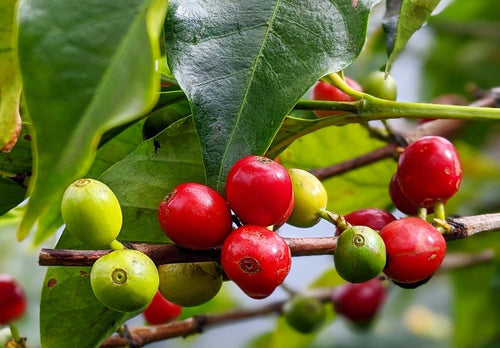Salvadoran Coops
El Salvador
Experience the excellence of El Salvadoran coffee, cultivated by reliable cooperatives in nutrient-rich volcanic soil.
A Brief History of Salvadoran Coffee
In El Salvador, coffee is more than just an export – it marks economic history and resilience. Introduced in the 1880s, coffee quickly replaced indigo as the primary export crop due to synthetic dyes. This shift benefited wealthy landowners, including political figures like President General Tomás Regalado, who owned extensive lands.
These elites heavily invested in infrastructure, encouraging the coffee industry's growth. By the 1920s, coffee accounted for 90% of El Salvador’s exports, and by the 1970s, the country was the world’s 4th largest coffee producer. The industry, however, was severely impacted by the civil war from 1979 to 1992. Post-war land reforms redistributed large estates, and today, 95% of coffee growers operate on less than 20 hectares. El Salvador's coffee sector is renowned for varieties like Pacas and Pacamara.
Despite a decline in coffee production over the past two decades, worsened by the Coffee Leaf Rust (CLR) crisis, El Salvador retains a skilled coffee workforce. A new generation of producers prioritizes quality over quantity, experimenting with post-harvest processes like sun-drying on clay patios and using raised beds.
While coffee is no longer El Salvador’s economic cornerstone, it plays a crucial role in environmental preservation. Over 90% of production occurs under shade trees, promoting biodiversity and soil conservation. Only 11% of the country's land remains forested, with 7% dedicated to coffee plantations. This commitment to sustainability underscores the enduring importance of coffee to El Salvador’s cultural and environmental landscape.









